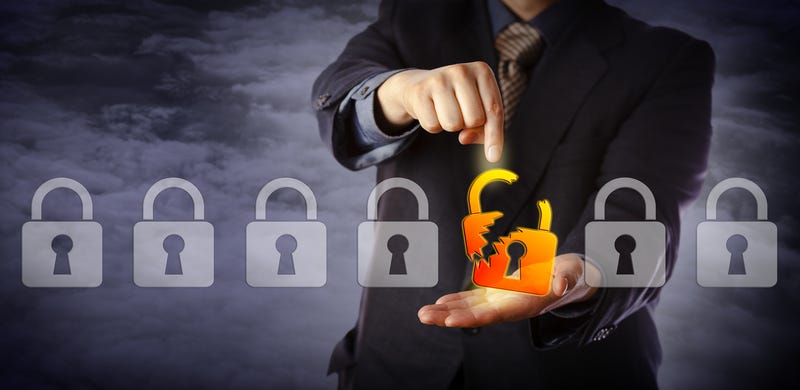
When private equity firms consider investing in a company, they need to ensure that every aspect of the business is sound, particularly its security and compliance measures. Whereas other components of a Technical Due Diligence (TDD) can, and do, change valuations, speed up or slow down the transaction, or mean that warranties are defined, security and compliance are critical components; problems here can stop the transaction dead in the water. This article will explain what security and compliance involve, why they are essential, and the types of questions and evidence investors seek during this assessment. We will also discuss key security certifications such as Cyber Essentials, Cyber Essentials Plus, ISO 27001, and SOC 2, and their relevance in different industry contexts.
What is Security and Compliance?
Security refers to the measures a company takes to protect its data, systems, and networks from cyber threats, breaches, and other malicious activities. This includes everything from firewalls and encryption to employee training and incident response plans.
Compliance involves adhering to laws, regulations, and standards relevant to the company’s industry. This could include data protection laws like the General Data Protection Regulation (GDPR), industry-specific regulations, and internal policies that ensure ethical and legal business practices.
Why are Security and Compliance Important?
Protect Sensitive Information. Companies often handle sensitive data, including personal information and financial records. Effective security measures protect this data from breaches and unauthorised access.
Avoid Legal Consequences. Non-compliance with laws and regulations can result in hefty fines and legal actions. Ensuring compliance helps avoid these consequences and maintains the company’s reputation.
Build Trust. Customers and partners need to trust that their data is safe and that the company follows ethical practices. Strong security and compliance frameworks build this trust.
Prevent Financial Loss: Cyber-attacks and non-compliance fines can result in significant financial losses. By maintaining robust security and compliance measures, companies can avoid these costs.
Security Certifications
Cyber Essentials and Cyber Essentials Plus
Cyber Essentials is a UK government-backed certification scheme designed to help organisations protect themselves from common cyber threats. Cyber Essentials Plus includes the same requirements but involves a more thorough assessment and on-site testing.
Context: Suitable for small to medium-sized enterprises (SMEs) looking to establish basic cybersecurity measures.
ISO 27001
ISO 27001 is an international standard for information security management systems (ISMS). It provides a framework for managing sensitive company information to ensure it remains secure.
Context: Ideal for larger organisations or those handling sensitive data, seeking to implement a comprehensive security management system.
SOC 2
SOC 2 is a framework for managing customer data based on five “trust service principles” — security, availability, processing integrity, confidentiality, and privacy. It is especially relevant for technology and cloud computing companies.
Context: Crucial for tech companies, especially those in SaaS or cloud services, looking to demonstrate robust data management and security practices.
What Do Investors Look For?
Cybersecurity Measures
Questions:
– What security protocols are in place to protect against cyber threats?
– How often are security audits conducted?
– What is the company’s incident response plan?
Evidence:
– Security policies and procedures documentation.
– Results from recent security audits and vulnerability assessments.
– Incident response plans and records of past incidents.
Data Protection and Privacy
Questions:
– How is sensitive data stored and protected?
– What measures are in place to ensure data privacy?
– Are there any past data breaches or privacy issues?
Evidence:
– Data encryption and access control policies.
– Privacy policies and employee training records.
– Reports on data breaches and corrective actions taken.
Regulatory Compliance
Questions:
– Which regulations and standards is the company required to comply with?
– How does the company ensure ongoing compliance?
– Are there any compliance certifications or third-party audits?
Evidence:
– List of applicable regulations and compliance requirements.
– Documentation of compliance processes and controls.
– Compliance audit reports and certification documents such as Cyber Essentials, ISO 27001, and SOC 2.
Employee Training and Awareness
Questions:
– What training programmes are in place for employees regarding security and compliance?
– How often is training conducted?
– How is employee awareness assessed and improved?
Evidence:
– Training materials and schedules.
– Records of employee participation in training sessions.
– Results from employee awareness assessments and feedback surveys.
Investors expect to see detailed documentation outlining security and compliance policies, procedures, and protocols. This includes everything from encryption standards to incident response plans. Comprehensive documentation demonstrates that the company takes security and compliance seriously and has structured processes in place.
Reports from internal and third-party audits provide insights into the effectiveness of security and compliance measures. These reports highlight strengths, identify weaknesses, and recommend improvements. Investors use these assessments to gauge the company’s overall security posture.
Evidence of regular employee training programmes on security and compliance is crucial. This shows that the company invests in educating its workforce about the importance of these areas and actively works to maintain a culture of security and compliance awareness.
Security and compliance are not just important components of Technical Due Diligence, they make a critical hygiene factor. Investors need to ensure that the company they are considering is well-protected against cyber threats and adheres to relevant laws and regulations. Certifications like Cyber Essentials, ISO 27001, and SOC 2 can significantly enhance a company’s credibility, but the journey towards achieving these certifications is equally important. By asking the right questions and examining detailed evidence, investors can make informed decisions that safeguard their investment. For company founders, having thorough documentation, audit reports, and training records ready can streamline the due diligence process and make the company more appealing to potential investors.